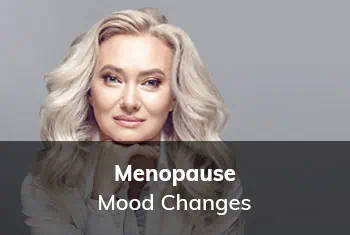The clinic of Dr. Aliabadi (hereafter referred to as the “Clinic”) is dedicated to improving the quality of medical and health information available on the world wide web. As a result, we pledge the following:
1. Authoritative
Any medical or health advice provided and hosted on this site will only be given by medically trained and qualified professionals unless a clear statement is made that a piece of advice offered is from a non-medically qualified individual or organization.
2. Complementary
The information provided on this site is designed to support, not replace, the relationship that exists between a patient/site visitor and his/her existing physician.
3. Privacy
Confidentiality of data relating to individual patients and visitors to a medical/health Web site, including their identity, is respected by this Web site. The Web site owners undertake to honor or exceed the legal requirements of medical/health information privacy that apply in the country and state where the Web site and mirror sites are located.
We use Google Analytics on our website to analyze the audience of the website and improve our content. No personal information is ever collected from Google Analytics. For further information on the privacy policy concerning Google Analytics, please go to: https://support.google.com/analytics/answer/6004245?hl=en.
4. Attribution
Where appropriate, information contained on this site will be supported by clear references to source data and, where possible, have specific HTML links to that data. The date when a clinical page was last modified will be clearly displayed (e.g. at the bottom of the page).
The source of the medically related content are written by the doctors and medical staff of the Clinic. Authorship is attributed on the content page and all information is medically reviewed by the Clinic’s education team.
5. Justifiability
Any claims relating to the benefits/performance of a specific treatment, commercial product, or service will be supported by appropriate, balanced evidence in the manner outlined above.
Please note that there are no guarantees that every medical treatment or surgery will satisfactorily cure or repair every condition, for every person, every single time.
Regarding any before and after pictures displayed on our website, the following are true:
- The person in the before picture and the after picture are the same.
- The pictures were not digitally modified nor in any way enhanced.
- Each surgery has unique results for each patient and no one can ever guarantee the same result for every person visiting our website.
- The Clinic has the explicit consent of the patients to take their pictures and publish them on your website.
6. Transparency
The designers of this Website will always seek to provide information in the clearest possible manner and provide contact addresses for visitors who seek further information or support. The Webmaster’s e-mail address is webmaster@draliabadi.com.
7. Financial Disclosure
No third-party commercial or non-commercial organizations have ever provided any economic support or services for this website. If that ever changes, it will be identified, including the identities of commercial and non-commercial organizations that have contributed funding, services, or material for the site.
8. Advertising policy
The Clinic does not accept any advertising from any company or individual and never has. If that ever changes, the source of funding will be stated and a brief description of our advertising policy adopted by the Web site owners will be displayed on the site. If advertising and/or other promotional material will ever be presented to website visitors, it will be in a manner and context that facilitates differentiation between it and the original material created by the institution operating the site.
Additional Web Site Terms and Conditions of Use
1. Terms
By accessing this website, you are agreeing to be bound by this website’s Terms and Conditions of Use, applicable laws and regulations, and their compliance. If you disagree with any of the stated terms and conditions, you are prohibited from using or accessing this site. The materials contained in this site are secured by relevant copyright and trademark law.
2. Use License
- Permission is allowed to temporarily download one duplicate of the materials (data or programming) on the Clinic’s site for individual and non-business use only. This is just a permit of license and not an exchange of title, and under this permit, you may not:
- modify or copy the materials;
- use the materials for any commercial use or for any public presentation (business or non-business);
- attempt to decompile or rebuild any product or material contained on the Clinic’s site;
- remove any copyright or other restrictive documentation from the materials; or
- transfer the materials to someone else or even “mirror” the materials on another server.
- This permit might consequently be terminated if you disregard any of these confinements and may be ended by the Clinic whenever deemed. After permit termination or when your viewing permit is terminated, you must destroy any downloaded materials in your ownership whether in electronic or printed form.
3. Disclaimer
The materials on the Clinic’s site are given “as is”. The Clinic makes no guarantees, communicated or suggested, and thus renounces and nullifies every single other warranty, including without impediment, inferred guarantees or states of merchantability, fitness for a specific reason, or non-encroachment of licensed property or other infringement of rights. Further, the Clinic does not warrant or make any representations concerning the precision, likely results, or unwavering quality of the utilization of the materials on its Internet site or generally identifying with such materials or on any destinations connected to this website
4. Constraints
In no occasion should the Clinic or its suppliers be subject to any harm (counting, without constraint, harms for loss of information or benefit, or because of business interference) emerging out of the utilization or powerlessness to utilize the materials on the Clinic’s Internet webpage, regardless of the possibility that the Clinic or an approved agent has been told orally or in written of the likelihood of such harm. Since a few purviews don’t permit constraints on inferred guarantees, or impediments of obligation for weighty or coincidental harms, these confinements may not make a difference to you.
5. Amendments and Errata
The materials showing up on the clinic’s site could incorporate typographical or photographic mistakes. The Clinic does not warrant that any of the materials on its site are exact, finished, or current. The Clinic may roll out improvements to the materials contained on its site whenever without notification. The Clinic does not, then again, make any dedication to update the materials.
6. Links
The Clinic has not checked on the majority of the websites or links connected to its website and is not in charge of the substance of any such connected webpage. The incorporation of any connection does not infer support by the Clinic of the site. Utilization of any such connected site is at the user’s own risk.
7. Site Terms of Use Modifications
The Clinic may update these terms of utilization for its website whenever without notification. By utilizing this site you are consenting to be bound by the then-current form of these Terms and Conditions of Use.
8. Governing Law
Any case identifying with the Clinic’s site should be administered by the laws of the country of the United States of America and the General Terms and Conditions applicable to the Use of a Web Site.
Privacy Policy
Your privacy is critical to us. Likewise, we have built up this Policy with the end goal you should see how we gather, utilize, impart, and reveal and make utilization of individual data. The following blueprints our privacy policy.
- Before or at the time of collecting personal information, we will identify the purposes for which information is being collected.
- We will gather and utilize individual data singularly with the target of satisfying those reasons indicated by us and for other good purposes unless we get the assent of the individual concerned or as required by law.
- We will just hold individual data for the length of essential for the satisfaction of those reasons.
- We will gather individual data by legal and reasonable means and, where fitting, with the information or assent of the individual concerned.
- Personal information ought to be important to the reasons for which it is to be utilized, and, to the degree essential for those reasons, ought to be exact, finished, and updated.
- We will protect individual data by security shields against misfortune or burglary, and also against unapproved access, divulgence, duplicating, use, or alteration.
- We will promptly provide customers with access to our policies and procedures for the administration of individual data.
We are focused on leading our business as per these standards with a specific end goal to guarantee that the privacy of individual data is secure and maintained.


















